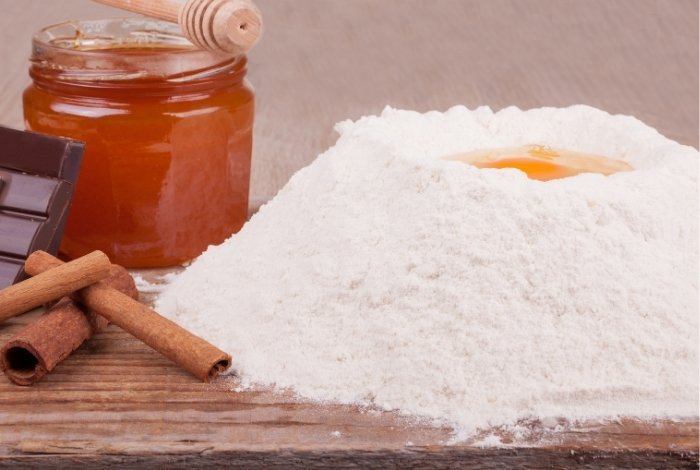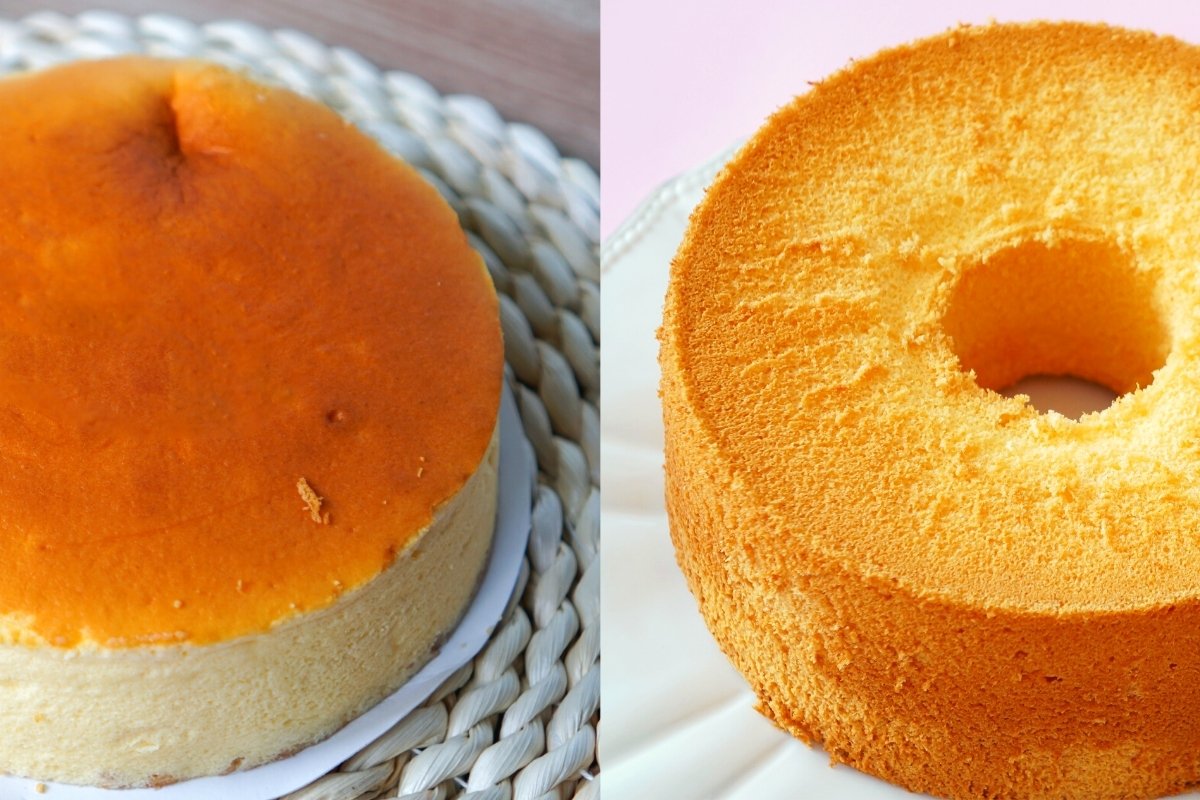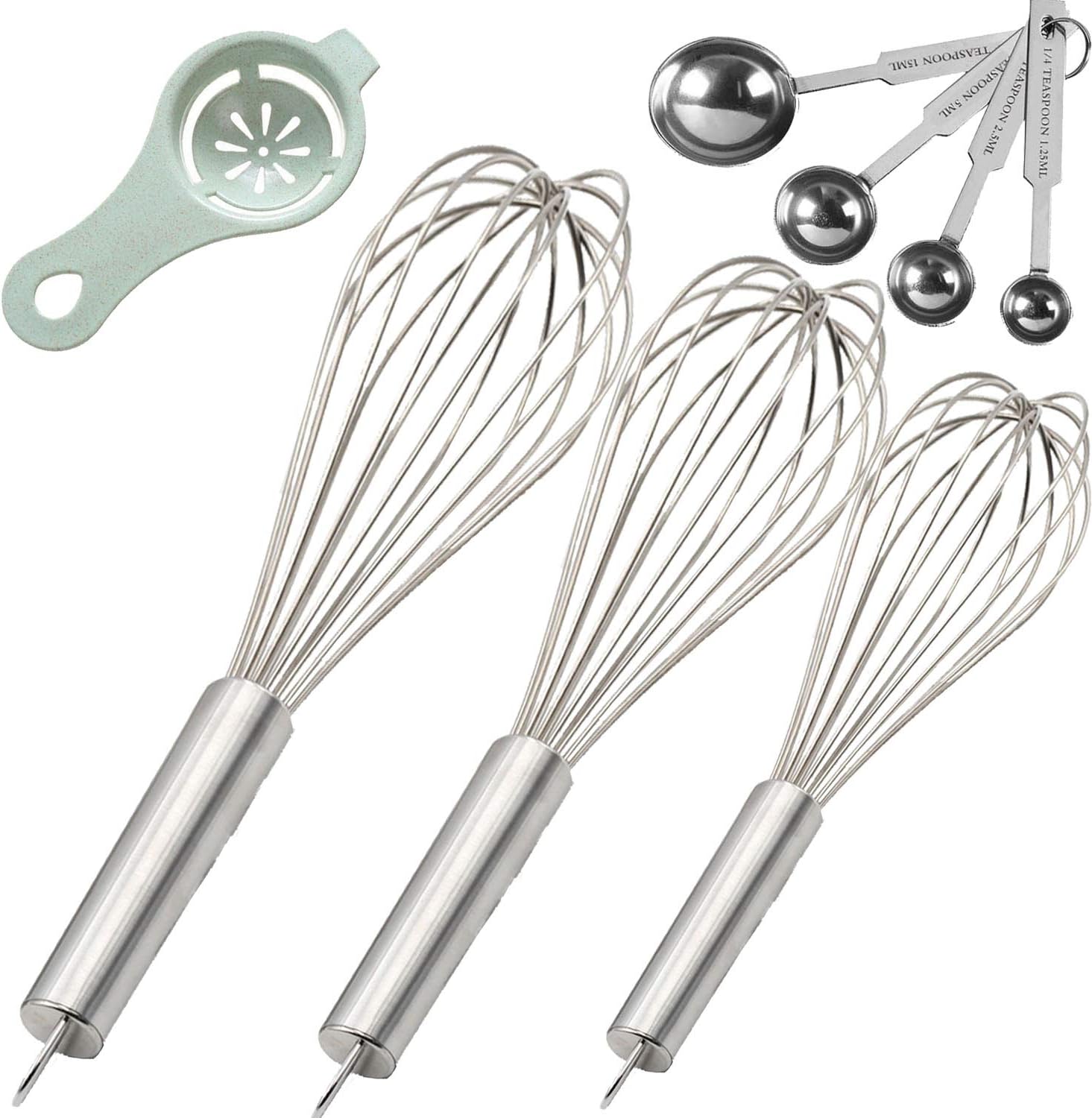Last Updated on March 20, 2023
When it comes to baking cake, it doesn’t always go according to plan. One question you may ask yourself is, why is my cake dense?
Even experienced bakers struggle from time to time with the consistency of their cakes. A dense cake is one of the most common mistakes that bakers of all experience levels make. It can easily happen without you even realizing you made an error.
Fortunately, there are some simple steps you can follow to help ensure that your cake is a light, fluffy texture. This will help prevent your cake from turning out dense, which can make for an unpleasant texture.
Why is My Cake Dense?
There are many reasons why your cake may have come out dense. From using too much flour to baking for too long, several points in the cake-baking process can lead to a dense texture. However, there are some easy ways to identify your problems and learn how to fix them.
#1 Too Much Flour
An easy mistake to make with any cake is accidentally adding too much flour. By not properly measuring it, you can easily end up adding more flour than the recipe calls for. The additional flour can create a dense consistency that gives off a heavy, gummy consistency.

#2 Baked for Too Long
Baking a cake for too long can cause it to lose the desirable texture we all love. Overbaking is an easy way you can create a heavy texture that can be unpleasant to eat.
#3 The Ingredients Weren’t at Room Temperature
Ingredients that are too cold are difficult to mix. This can create an undesirable texture in the batter which can make for a heavy cake. In addition, cold ingredients can lead to curdling.
#4 The Batter Was Overmixed
Overmixing can cause your cake to fall flat and have a dense consistency. When you mix for too long, you break down the protein molecules and add too much air. The air then deflates while baking and the cake can collapse and become heavy.
#5 Your Baking Powder and/or Baking Soda Has Expired
Baking soda and powder work as leavening agents, giving cakes a nice rise. If your baking soda or powder has expired, your cake likely won’t rise. This can potentially lead it to have a heavy texture as it falls flat.
How to Prevent Your Cake from Becoming Dense
Fortunately, by following these tips you can prevent your cake from becoming dense. This will help you create a delicious cake with a wonderful texture.
Carefully Measure Out All Your Ingredients
Be sure to carefully measure out all your ingredients. When measuring flour, spoon and level it into your measuring cup. For an even more accurate measurement, use a kitchen scale to weigh your ingredients.
Monitor How Long it Bakes for
Monitor your cake when baking and be sure to set a timer to avoid baking for too long. Use a toothpick to check if it is fully baked. When the toothpick comes out clean, your cake is fully baked and you can take it out of the oven.
Bring Your Ingredients to Room Temperature
Unless otherwise specified, you should bring all your cold ingredients to room temperature before adding them to your batter. This will make them easier to work with and give your cake a desirable texture. Take your cold ingredients out of the fridge 30 minutes to an hour before you start baking.
Avoid Overmixing
Though it can be tempting to keep mixing your ingredients to ensure everything is thoroughly combined, this can do more harm than good. Make sure to only mix your ingredients as long as your recipe says. When adding the dry ingredients to the wet ingredients, stop mixing once everything is fully incorporated.
Make Sure All Your Ingredients Are Fresh
Before you get baking, make sure none of your ingredients have expired. Be certain that your baking powder and baking soda are still good and have been properly stored. This will help ensure all the ingredients combine and your cake will have an amazing taste and texture.
Does Yogurt Make Cake Dense?
Using Greek yogurt in cake has been a top tip in baking for as long as I can remember. Using yogurt in the cake can help with many things in baking; one of them being the density. Its creaminess makes it dense, but then this also means that it makes the cake much moister.
The tangy flavor really adds another level to your cake. You could use sour cream or creme fraiche as a replacement for yogurt if you’d prefer as they both give similar results.
What Can I Do With Dense Cake?
If your cake has become a little too dense, there are plenty of ways you can still make use of it. Here are some of our top ways to make the most out of your cakes:
- Cover the cake. Whether you choose to use frosting, glaze, hot fudge, or chocolate ganache – a layer of something sweet can hide a multitude of sins! You could also add fresh fruit to the top to add more texture and flavor.
- Pie crust. Try making a pudding pie with your dense cake and filling it with whichever pudding and fruit you’d like. It really does taste absolutely delicious!
- Fresh fruit. You could try making it more flavorful with fresh fruit, or spicing it up with fruit soaked in alcohol. Alcohol makes all fruit taste even better.
- Fudge cups or mini cakes. Break your cake into pieces and decorate. Whether you drizzle with hot fudge and serve in a cup or frost a selection of mini cakes for bite-sized fun, there are plenty of ways to use your cake if you break it up.
Does Putting a Cake in the Fridge Make it Dense?
There’s no simple answer to this question as it all depends on which ingredients you use. If you use butter in your cake, putting it in the fridge will make it dense. Not only that, but it may also cause it to dry out and go hard if not stored correctly. If you’ve used oil in your cake, your cake should remain soft.
What is the Densest Cake?
Any cake can be made dense if you use the correct ingredients. However, the most naturally dense cake is pound cake. Typically, pound cake doesn’t rise as much as traditional sponge cake. Chocolate cake can also be quite dense too. However, it all depends on how it’s baked.
Can You Eat a Dense Cake?
Absolutely! A dense cake doesn’t always mean that the cake is underbaked. Cake can be thick for a range of reasons, including too much liquid, too much baking powder…or even too much sugar. While it may not look quite as appetizing as it should, it can still be just as delicious.
Just spice up your dense cake with something like a flavorful frosting, or drizzle over a glaze. You could even cut your cake and make a selection of different flavored mini-cakes. While a dense cake is more difficult to enjoy, there are still plenty of ways to make the best of it; and it’s perfectly safe to do so!
Make a Perfect Cake
Dense cakes are annoying and can be frustrating after spending all that time baking. It is a common mistake that can happen to anyone, but by carefully following these tips you can avoid this undesirable texture. You will love having a cake that is deliciously light and fluffy, not thick and gummy.
Do you have any questions about why is my cake dense? If so, please ask them in the comments down below.

Ever since she was a young girl, Anna has been a lover of desserts. As an adult, she enjoys
baking a variety of desserts from cakes, cookies, brownies, bread, and more from scratch. She
enjoys sharing her passion for baking with others who also have a sweet tooth. From properly
measuring ingredients to making sure they are the correct temperature, Anna knows the
importance small details can make in baking. She wants to share her experience with others in
hopes they can make the most delicious baked goods. When she’s not busy blogging, Anna
enjoys trying new recipes in the kitchen.


